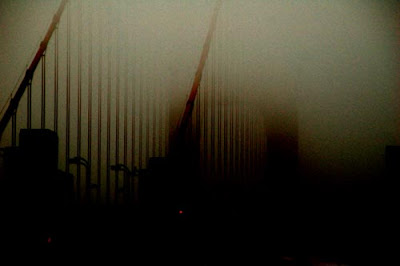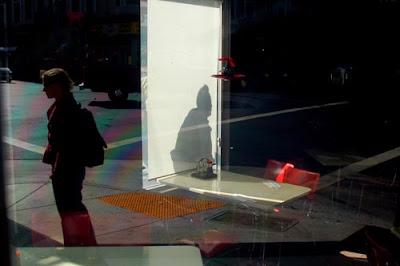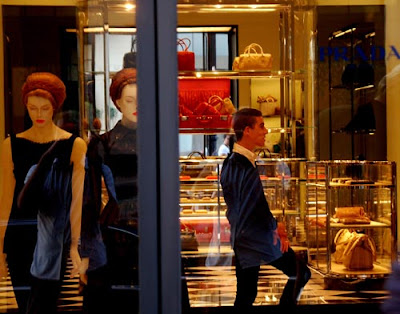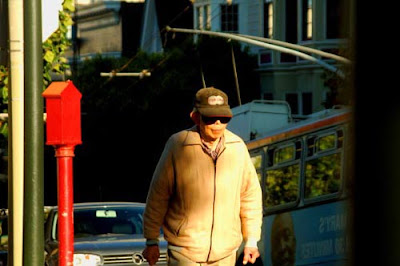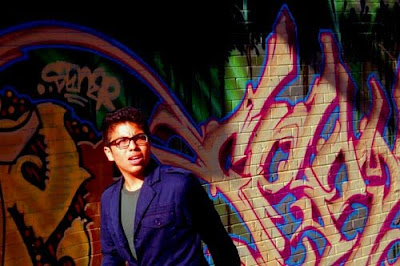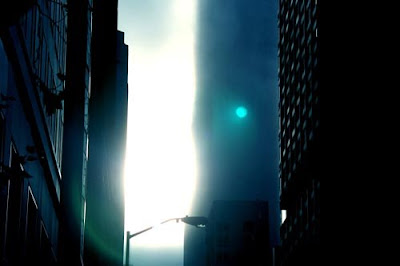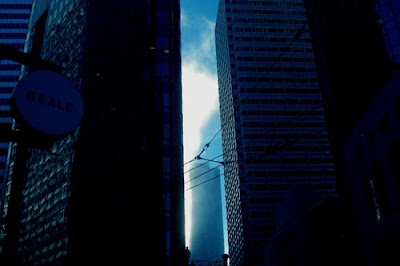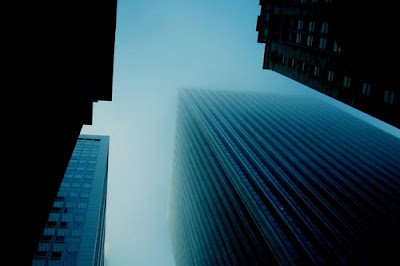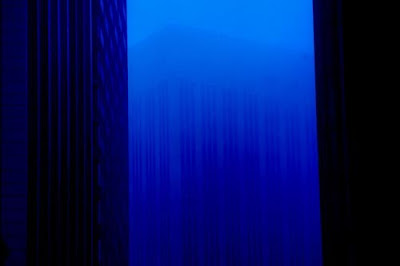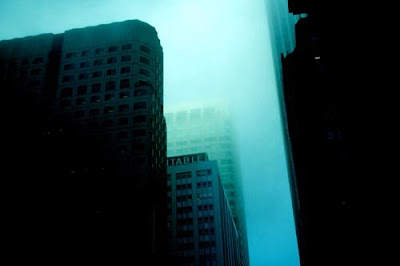
A homeless is watching as a peace demonstration starts to pick up momentum. It's not much of a momentum, though. 40 persons, at the most, has gathered downtown San Francisco to protest USA's wars in dirt poor countries. So the homeless watch for awhile, then drift off. He probably couldn't care less.
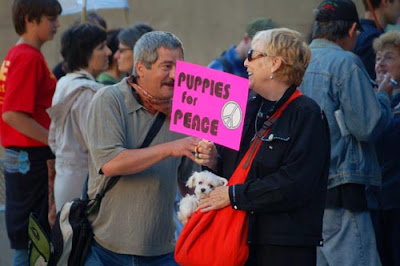

What's interesting about this demonstration is that it demonstrates how little people care. It also demonstrates that there ain't no bite in the message given. In fact, it's hard to imagine a more pathetic protest against American imperialism.


Then it suddenly strikes me that the American diversity may be a bit superficial. The core values are dished out on an even scale. The American war machine has made people believe in an eternal war. An eternal war for peace, that is. So it's easy to sit back and shrug it off. Unless you're in the country where the bombs drop.
"It's hard to see the truth when it's the lie that feeds you." Ooops, who said that?













